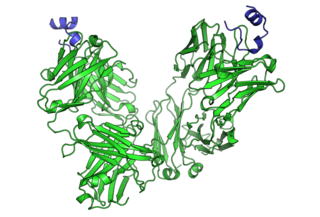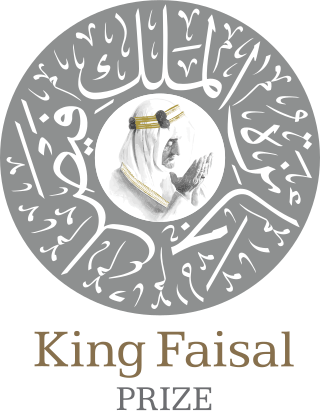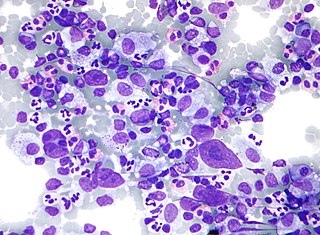Related Research Articles

Lymphoma is a group of blood and lymph tumors that develop from lymphocytes. The name typically refers to just the cancerous versions rather than all such tumours. Signs and symptoms may include enlarged lymph nodes, fever, drenching sweats, unintended weight loss, itching, and constantly feeling tired. The enlarged lymph nodes are usually painless. The sweats are most common at night.

Rituximab, sold under the brand name Rituxan among others, is a monoclonal antibody medication used to treat certain autoimmune diseases and types of cancer. It is used for non-Hodgkin lymphoma, chronic lymphocytic leukemia, rheumatoid arthritis, granulomatosis with polyangiitis, idiopathic thrombocytopenic purpura, pemphigus vulgaris, myasthenia gravis and Epstein–Barr virus-positive mucocutaneous ulcers. It is given by slow intravenous infusion. Biosimilars of Rituxan include Blitzima, Riabni, Ritemvia, Rituenza, Rixathon, Ruxience, and Truxima.

Cancer immunotherapy (immuno-oncotherapy) is the stimulation of the immune system to treat cancer, improving the immune system's natural ability to fight the disease. It is an application of the fundamental research of cancer immunology and a growing subspecialty of oncology.

Ibritumomab tiuxetan, sold under the trade name Zevalin, is a monoclonal antibody radioimmunotherapy treatment for non-Hodgkin's lymphoma. The drug uses the monoclonal mouse IgG1 antibody ibritumomab in conjunction with the chelator tiuxetan, to which a radioactive isotope is added. Tiuxetan is a modified version of DTPA whose carbon backbone contains an isothiocyanatobenzyl and a methyl group.

Dacarbazine, also known as imidazole carboxamide and sold under the brand name DTIC-Dome, is a chemotherapy medication used in the treatment of melanoma and Hodgkin's lymphoma. For Hodgkin's lymphoma it is often used together with vinblastine, bleomycin, and doxorubicin. It is given by injection into a vein.
Tositumomab is a murine monoclonal antibody which targets the CD20 antigen produced in mammalian cell. It was combined with iodine-131 to produce a radiopharmaceutical for unsealed source radiotherapy, Iodine-131 Tositumomab, for the treatment of non-Hodgkins lymphoma. It is classified as a IgG2a lambda antibody.

Josep Baselga i Torres, known in Spanish as José Baselga, was a Spanish medical oncologist and researcher focused on the development of novel molecular targeted agents, with a special emphasis in breast cancer. Through his career he was associated with the Memorial Sloan Kettering Cancer Center, Vall d'Hebron Institute of Oncology, and the Massachusetts General Hospital in their hematology and oncology divisions. He led the development of the breast cancer treatment Herceptin, a monoclonal antibody, that targets the HER2 protein, which is impacted in aggressive breast cancers.
Lucatumumab is a human monoclonal antibody against CD40 development of which was discontinued by Novartis in 2013 after it was investigated for the treatment of various types of cancer like multiple myeloma and follicular lymphoma.
Dacetuzumab is a humanized monoclonal antibody being developed for the treatment of CD40-positive cancers like non-Hodgkin's lymphoma and hematological malignancies.
Obinutuzumab, sold under the brand name Gazyva among others, is a humanized anti-CD20 monoclonal antibody used as a treatment for cancer. It was originated by GlycArt Biotechnology AG and developed by Roche.
Siltuximab is a chimeric monoclonal antibody. It binds to interleukin-6. Siltuximab has been investigated for the treatment of neoplastic diseases: metastatic renal cell cancer, prostate cancer, other types of cancer, and for Castleman's disease.

The King Faisal Prize, is an annual award sponsored by King Faisal Foundation presented to "dedicated men and women whose contributions make a positive difference". The foundation awards prizes in five categories: Service to Islam; Islamic studies; the Arabic language and Arabic literature; science; and medicine.

Hodgkin lymphoma (HL) is a type of lymphoma in which cancer originates from a specific type of white blood cell called lymphocytes, where multinucleated Reed–Sternberg cells are present in the patient's lymph nodes. The condition was named after the English physician Thomas Hodgkin, who first described it in 1832. Symptoms may include fever, night sweats, and weight loss. Often, nonpainful enlarged lymph nodes occur in the neck, under the arm, or in the groin. Persons affected may feel tired or be itchy.
Brentuximab vedotin, sold under the brand name Adcetris, is an antibody-drug conjugate medication used to treat relapsed or refractory Hodgkin lymphoma (HL) and systemic anaplastic large cell lymphoma (ALCL), a type of T cell non-Hodgkin lymphoma. It selectively targets tumor cells expressing the CD30 antigen, a defining marker of Hodgkin lymphoma and ALCL. The drug is being jointly marketed by Millennium Pharmaceuticals outside the US and by Seagen in the US.

James Patrick Allison is an American immunologist and Nobel laureate who holds the position of professor and chair of immunology and executive director of immunotherapy platform at the MD Anderson Cancer Center at the University of Texas.
Seagen Inc. is an American biotechnology company focused on developing and commercializing innovative, empowered monoclonal antibody-based therapies for the treatment of cancer. The company, headquartered in Bothell, Washington, is the industry leader in antibody-drug conjugates or ADCs, a technology designed to harness the targeting ability of monoclonal antibodies to deliver cell-killing agents directly to cancer cells. Antibody-drug conjugates are intended to spare non-targeted cells and thus reduce many of the toxic effects of traditional chemotherapy, while potentially enhancing antitumor activity.
David G. Maloney is an oncologist and researcher at Fred Hutchinson Cancer Research Center and the University of Washington who specializes in developing targeted immunotherapies for the treatment of blood cancers.
Checkpoint inhibitor therapy is a form of cancer immunotherapy. The therapy targets immune checkpoints, key regulators of the immune system that when stimulated can dampen the immune response to an immunologic stimulus. Some cancers can protect themselves from attack by stimulating immune checkpoint targets. Checkpoint therapy can block inhibitory checkpoints, restoring immune system function. The first anti-cancer drug targeting an immune checkpoint was ipilimumab, a CTLA4 blocker approved in the United States in 2011.
Camrelizumab (SHR-1210) (INN) is an anti-PD-1 immune checkpoint inhibitor that is being investigated for hepatocellular carcinoma and Hodgkin lymphoma.
Sally Barrington is a professor of positron emission tomography (PET) Imaging and National Institute for Health Research (NIHR) research professor at King's College London (KCL), England, United Kingdom. She joined KCL in 1993.
References
- ↑ "Clinical Focus" . Retrieved 2010-02-26.
- ↑ "A drug of one's own" (PDF). Retrieved 2010-04-02.
- ↑ "Professional Education" . Retrieved 2010-02-26.
- ↑ "Winners of the King Faisal International Prize (KFIP) for the year 1429H / 2009G". King Faisal Foundation. Retrieved 2010-04-02.
- ↑ "Honors and Awards" . Retrieved 2010-02-26.
- ↑ "U.S. professor becomes first Jew to win 'Arab Nobel Prize'". 2009-04-16. Retrieved 2010-02-26.
- ↑ "Jewish oncologist accepts prestigious award from Saudis". 2009-04-23. Retrieved 2010-02-26.